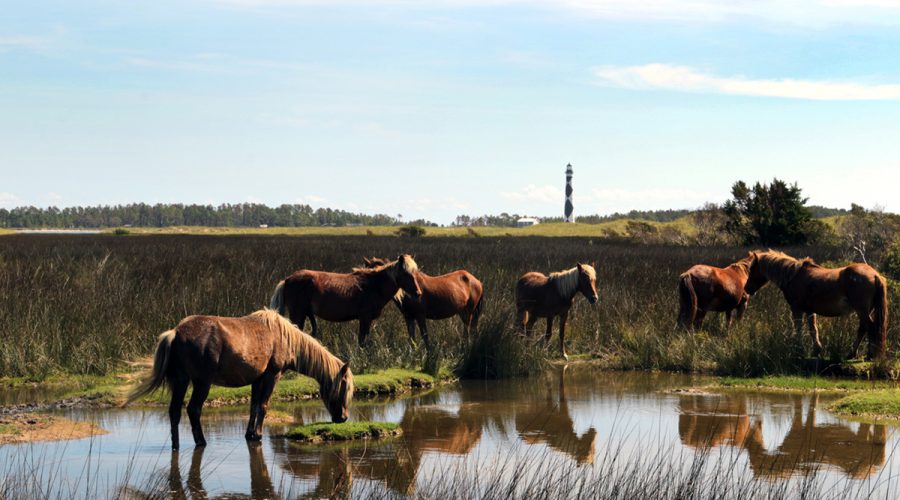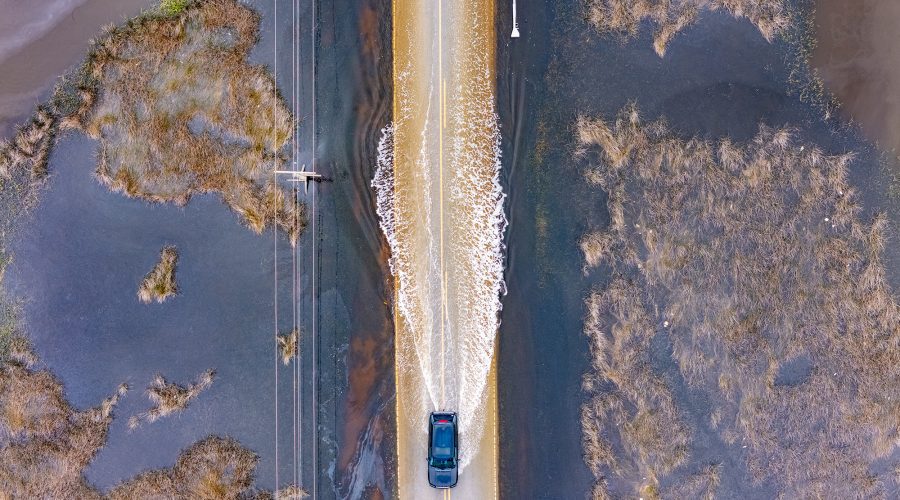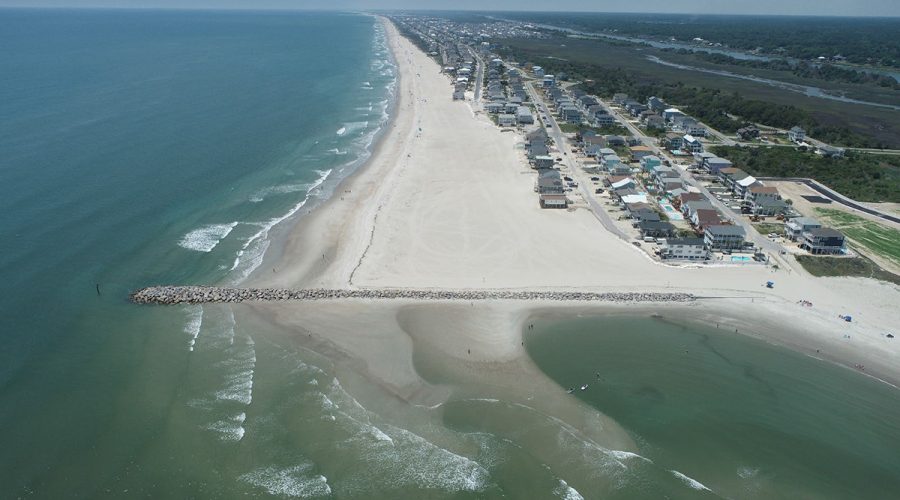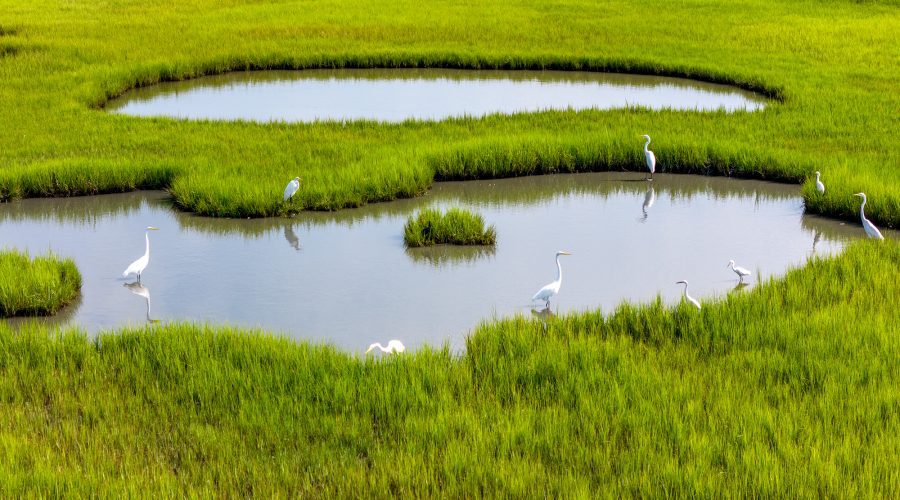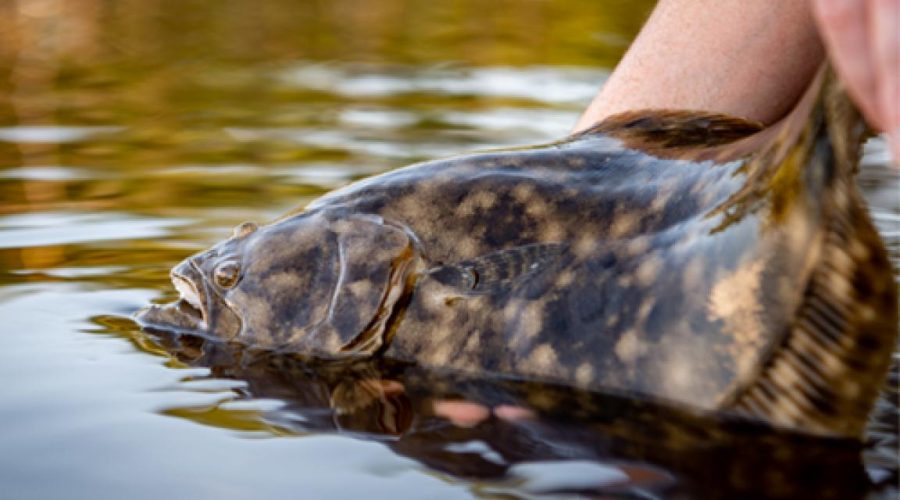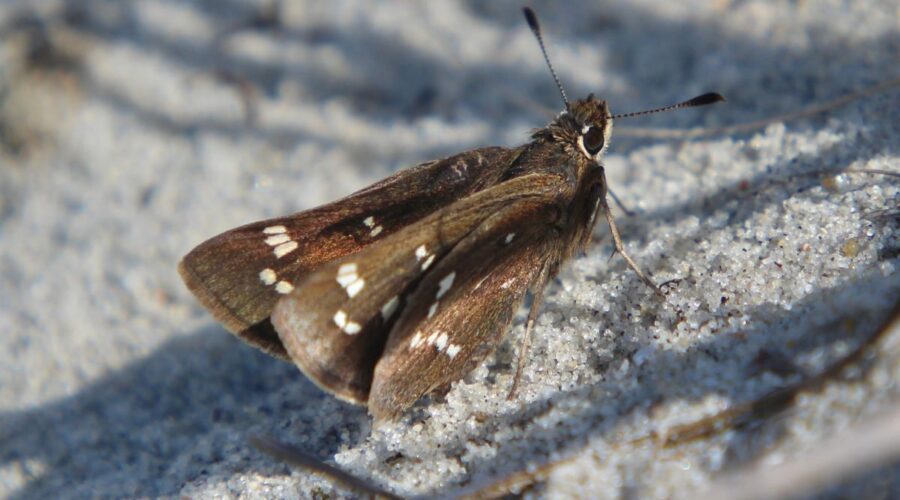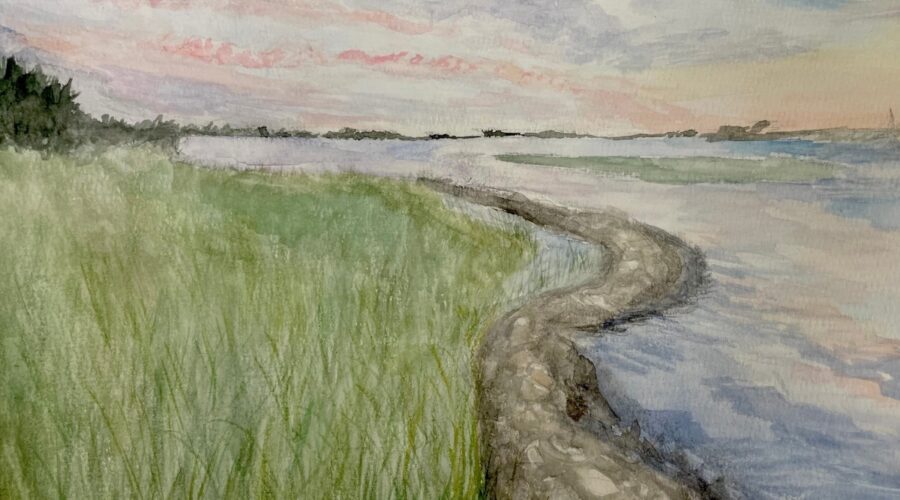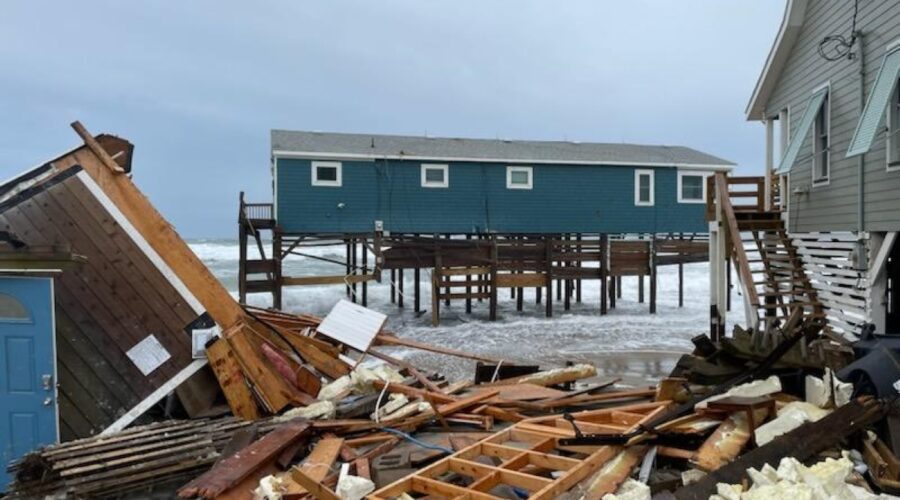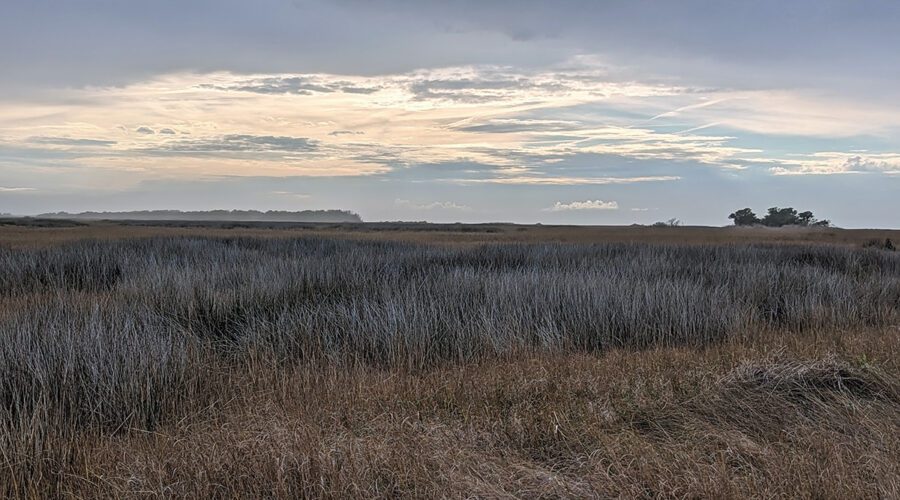Opinion: While the Department of Interior has excluded the entire Atlantic Coast from its current drilling program — a result of decades of tireless local opposition — it is time to demand permanent legislative protection for our waters before the threat returns in the next five-year cycle.
Guest Columns
Opinion: For whose benefit are barrier island horses?
Guest commentary: Invasive species pose a serious challenge for ecosystems that have not evolved alongside them, and such is the case with North Carolina’s crystal skipper and the nonnative horses allowed to roam the barrier islands that are the butterfly’s only habitat.
Guest commentary: When the water doesn’t go away
Drainage systems that rely on gravity fail when the difference in elevation that drives water from land to sea has been shrinking as sea level rises.
Port’s Cape Fear dredge project fails taxpayers, environment
Guest commentary: Deepening the Cape Fear River will only worsen flooding around the downtown Wilmington waterfront and the North Carolina Battleship site and lead to a substantial loss of vital wetlands and floodplains.
Chemours is doubling down on its toxic history: NRDC
Chemours is not a company that can be trusted to expand its operations responsibly, and it’s an example of the national PFAS pollution crisis, writes Drew Ball of the Natural Resources Defense Council.
Opinion: Ocean Isle’s terminal groin process fully transparent
Readers are not provided full context and are left with an incomplete understanding of the facts regarding the lengthy, transparent public process behind the town’s terminal groin project, writes Ocean Isle Beach Mayor Debbie Smith.
Coastal habitats are North Carolina’s hidden climate engines
North Carolina’s abundant coastal wetland ecosystems are highly effective carbon storehouses, serving to slow climate change’s pace while also providing vital fish nurseries, wildlife havens and storm buffers.
Roadless Rule protects US wildlands, Croatan National Forest
Guest opinion: The federal Roadless Rule was adopted with massive public support and now protects 58.5 million acres of roadless national forestland in 39 states, but it’s in jeopardy and our voices are powerful.
Southern flounder: Warmer seas may skew iconic fish’s future
Guest commentary: Southern flounder are unusually sensitive to climate change because water temperatures during their juvenile stage determines whether they develop as male or female — and the implications are stark.
PACT Act ignores TCE, PCE contamination on military bases
Guest commentary: With more than 620,000 veterans living in North Carolina, many likely exposed to recently banned compounds trichloroethylene and perchloroethylene while working for the military, updating the toxic agents list is essential for equal access to benefits.
Offshore drilling still has no place on the Atlantic Coast
Guest commentary: The people of North Carolina stood up and stopped offshore drilling once before, and we must do it again, but only a few days remain to submit your comments on the administration’s push to drill.
Tales from the dunes: Butterflies in science, sentiment
NC State and North Carolina Aquarium researchers have traipsed across sand to study the crystal skipper, a butterfly known for its white speckled wings that can only be found in the Bogue Banks area.
Bulkhead alternatives could reimagine a changing coast
Duke University undergraduate Ava Kocher in this guest commentary explores the value of using living shorelines to protect wetlands and property.
Preventing Environmental Hazards Act a commonsense bill
Guest opinion by Congressman Greg Murphy: Allowing National Flood Insurance Program payouts to remove a threatened oceanfront structure before it collapses, rather than wait until it creates an environmental disaster, will add flexibility while mitigating risks.
Doomed to repeat history: What’s in future for NC wetlands?
Guest commentary: Ignoring the past guarantees a grim future for our coastal communities, as the fishermen of Rose Bay warned decades ago. Will we listen now, or once again pay the price for failing to protect our way of life?
Opinion: Don’t sell off our public waters to highest bidder
Guest commentary: Recent actions by the new administration make it clear that they are out of touch with community interests, concerns about climate change and the need to protect our natural resources.


